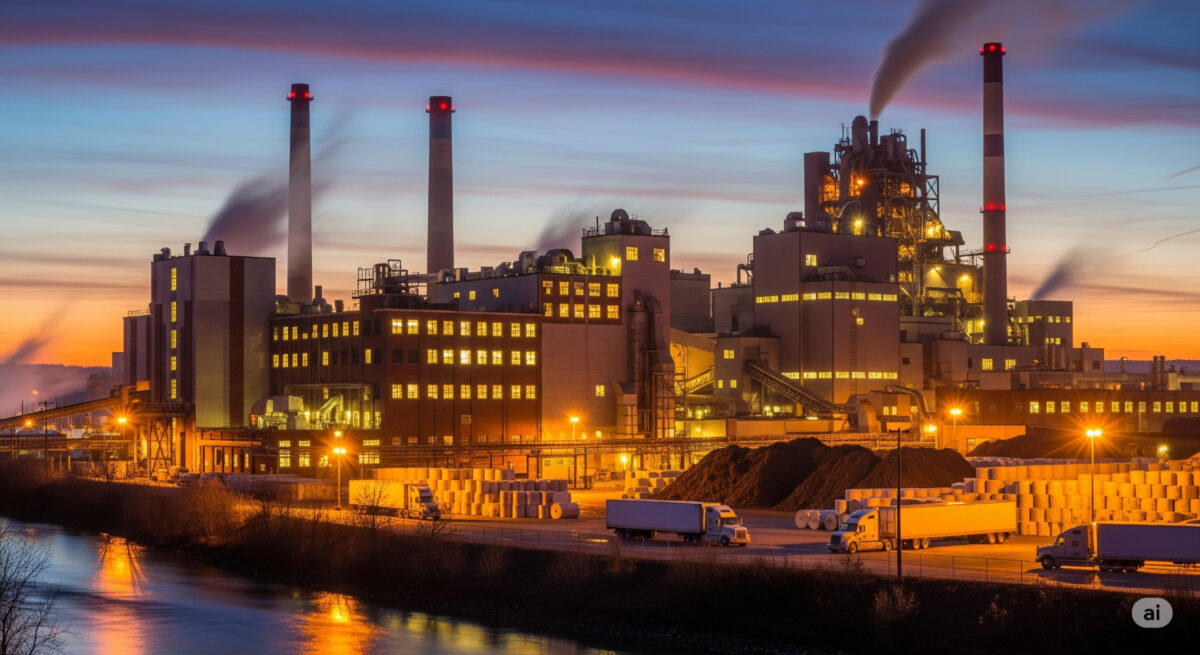No community likes to lose jobs, and the 1100 jobs lost with International Paper closing two mills in the Savannah area is going to be painful.
But let’s stop pretending that International Paper has been a good neighbor, because this just isn’t true.
International Paper has been one of the largest industrial users of water in our area, and one of the largest drawing down on the Florida Aquifer. This, at a time when water use is becoming problematic in our community…if the recent boil water order Savannah suffered didn’t properly catch all of our attention.
According to an article in The Current in 2024, IP pulls 12 million gallons of water from the Floridan aquifer every single day. That’s 12 million gallons of water that could go to homes, rather than river water currently being utilized.
Why doesn’t IP use the river water? Because it costs money to treat this water, and why spend the money when the aquifer water is so accessible and so pristine? However, it is the nature of this water that makes it more ideal for human consumption.
“This region is growing,” said Ben Kirsch, legal director of the Ogeechee Riverkeeper. “There’s more people coming in, and those people are going to need water, and it’s a prioritization of how the aquifer is used. The aquifer needs very little treating. It’s pristine water, and we really think that it should be used for human uses, whether that’s for domestic supply or for agriculture.”
“We want to sustain the aquifer. We want to see it start to recover, and as you draw millions of gallons a day out of it. You’re not necessarily helping it. That’s not helping it recover.”
In addition, IP manages to also pollute the water it really doesn’t want to use.
International Paper Company faces nearly $28,000 in state fines for discharging wastewater with unacceptable levels of potential fecal material from its Port Wentworth mill into the Savannah River over a six-month period in 2023, according to an order made public by Georgia environmental officials Monday.
The penalty also would apply to the unauthorized release in December of nearly 185,000 gallons of partially treated wastewater into a storm drain and ultimately into the river, the Georgia Environmental Protection Division noted in the document.
Not just the water, IP also pollutes the air, as so many of us know when the wind runs from a certain direction.
In 2022, International Paper’s northwest Savannah mill released more than 367,000 metric tons of heat-trapping carbon dioxide, U.S. Environmental Protection Agency data shows. That’s 84% more than the county’s second-leading carbon polluter, the U.S. Sugar Savannah Refinery, and the equivalent of what nearly 83,000 gas-powered vehicles would emit over the course of a year, according to the EPA.
Carbon dioxide is the leading contributor to human-caused climate change.
International Paper’s Port Wentworth mill is fifth on the county’s list of greenhouse gas polluters. That facility emits more than 95,000 metric tons of carbon dioxide.
Combined, the two Chatham plants – with machinery powered by burning natural gas and wood – release the equivalent of carbon emissions generated in more than 1.2 million miles of travel by a typical vehicle with a combustion engine, according to EPA.
An interesting thing about that article I just linked: it’s about a taxpayer bond issue giving IP $130 million dollars to expand the plant.
A deal finalized with local officials this week positions Chatham County’s largest greenhouse gas polluter – and source of the city’s infamous sulfur smell – to significantly increase production at its Savannah-area facilities.
The Savannah Economic Development Authority (SEDA) on Tuesday approved issuing $130 million in bonds to “finance the costs of certain machinery, equipment and other personal property” at International Paper Company’s Savannah and Port Wentworth mills.
The Chatham County Board of Commissioners signed off on the deal late last year.
Of course, this all happened before IP decided to close down the Savannah-area plants in favor of a new plant in Alabama, where it will likely face less pesky oversight than in Georgia. And I’m sure the local area there offered even better deals than a measly $130 million dollars.
No one wants to hear of people losing jobs. Though it helps to know that unemployment is very low in our area, and we have a robust economy with multiple major employers, it’s difficult for people who have worked for the same company for decades to transition to another employer.
At the same time, though, it’s disingenuous to indulge in maudlin reminisces of the history of a company who basically can’t wait to kick the dirt of coastal Georgia from its shoes. IP likely knew that they would be closing these mills long before the announcement. Not providing more notice to its employees is the mark of a large, soulless corporation, not a small town hero.
Good-bye, good riddance, and now let’s worry about the people.
Update: Savannah Agenda has a good piece on the bond mentioned earlier.

